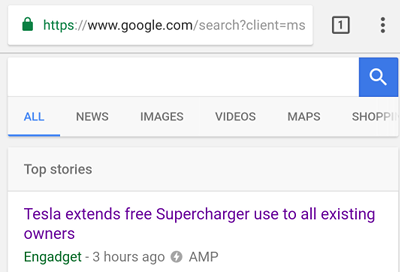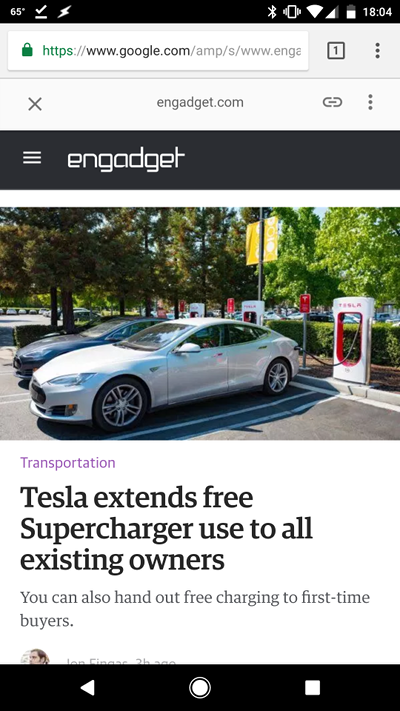Zarathustra[H]
Extremely [H]
- Joined
- Oct 29, 2000
- Messages
- 38,858
When I first discovered Google's AMP pages on my phone, I was bothered by them. Instead of the pages being hosted on the sites I expected, they were somehow cached on an unintelligible Google link, and now there was an extra menu bar on my screen for AMP, taking up screen real-estate. Something about this method just felt wrong, almost as if I was being tricked by a man in the middle attack, rather than seeing the page I want directly from the site hosting it. What's worse? As a user, you can't turn it off. You get it whether you want it or not, at least as long as you use Google as your search provider. Content providers on the other hand can choose whether to participate or not, and Scott Gilbertson over at The Reg has an editorial up regarding why they shouldn't.
What it is, is a way for Google to obfuscate your website, usurp your content and remove any lingering notions of personal credibility from the web.
If that appeals to you, here's what you need to do. First, get rid of all your HTML and render your content in a subset of HTML that Google has approved along with a few tags it invented. Because what do those pesky standards boards know? Trust Google, it knows what it's doing. And if you don't, consider yourself not part of the future of search results.
What it is, is a way for Google to obfuscate your website, usurp your content and remove any lingering notions of personal credibility from the web.
If that appeals to you, here's what you need to do. First, get rid of all your HTML and render your content in a subset of HTML that Google has approved along with a few tags it invented. Because what do those pesky standards boards know? Trust Google, it knows what it's doing. And if you don't, consider yourself not part of the future of search results.
Last edited:
![[H]ard|Forum](/styles/hardforum/xenforo/logo_dark.png)


